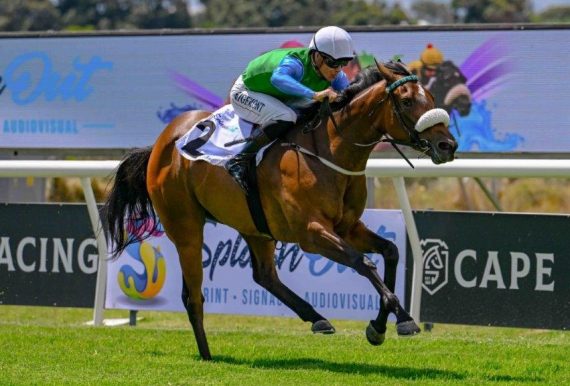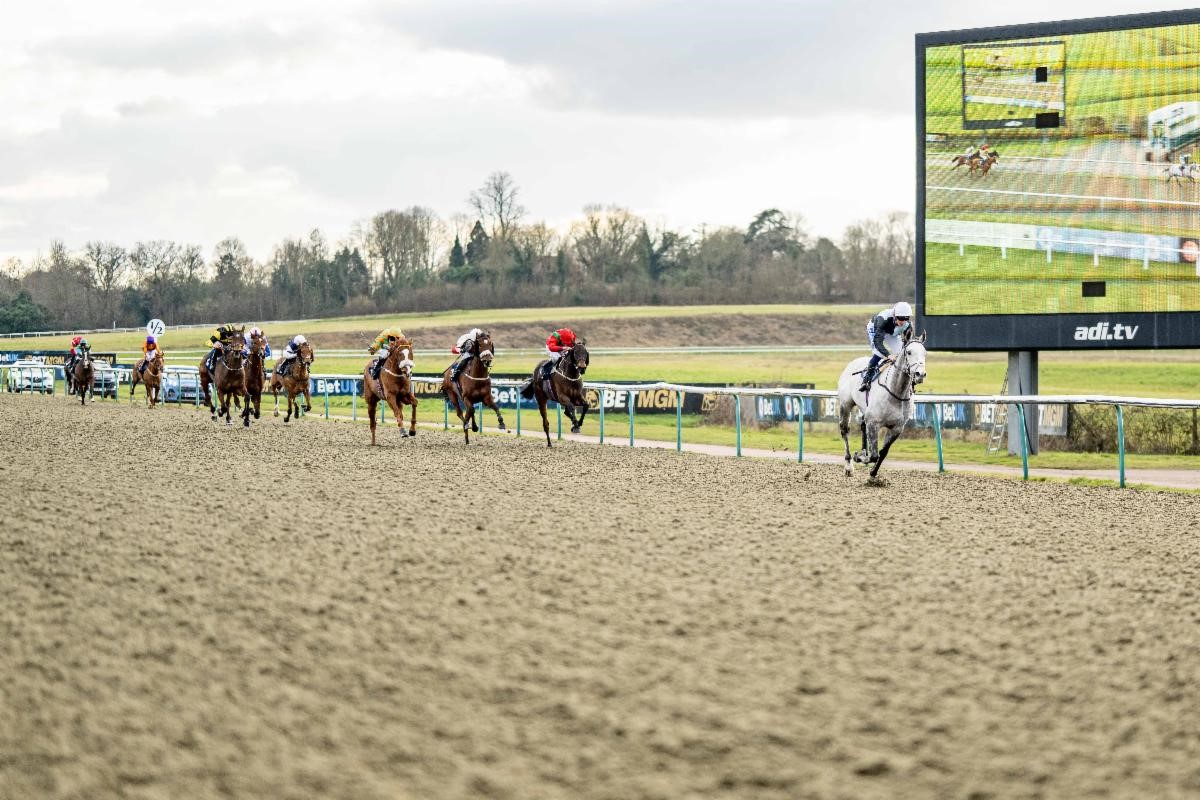Following on from the recent Wits Health Consortium press release and report on the April Export Workshop, we caught up with Professor Ian Sanne to find out more about the recent changes on our AHS research and export status landscape. At the invitation of various role players Professor Sanne has taken on the role of coordinating the scientific response to African Horse Sickness and other diseases affecting horses.
Professor Sanne is probably best known in the racing community as the son of Oldlands Stud’s Barbara Sanne. He also breeds Thoroughbreds in his own right and his wife is a competitive dressage rider. However, to the rest of the world he is a respected authority in his chosen field of medical research – HIV, TB and infectious diseases. Sanne is a trained specialist physician and infectious disease sub-specialist at the University of the Witwatersrand (Wits). He holds an MBBch (Wits), FCP SA (Wits), DTM&H (Wits), FRCP(lon). In 2008, Ian was appointed an Associate Professor in the Faculty of Health Sciences of Wits University. He is the founder and director of the Clinical HIV Research Unit at Wits and he is also a founder and CEO of Right To Care, an internationally recognised and well supported NGO focused on HIV/AIDS and TB prevention and treatment in support of the Department of Health National Strategic Plan. He has an impressive body of research to his credit and critically is also well versed in regulatory work as well as the ins and outs of the registration of new drugs and vaccines.
Somewhat more pertinently for our readers, Professor Sanne has expanded his interests into the field of African Horse Sickness and is as of 1 July 2014, has initiated the Equine Health Fund as a mechanism to access donor funding for research and surveillance of horse diseases including African Horse Sickness. What this means in practice, is that Sanne will take over the role of managing and distributing the funding for AHS and export research previously managed by Racing South Africa.
Discord
Professor Sanne told the Sporting Post, “When I came to the field of AHS, I felt that there was significant discord within the industry around the direction that should be taken. Much of the dissatisfaction that was voiced was related to the investment made to date, which stands at a little in excess of 20 million Rand in the Equine Research Centre (ERC). My response to that would be that if I tried to match the successes that the ERC has had in my own field of speciality, I’d have had to spend 20 million US dollars.”
“It is important to recognise that the ERC have in fact been successful in a number of core areas.
– They have set up a dedicated Pretoria University recognised research unit and maintained it for a number of years now. The unit trains a lot of competent post-graduate staff interested in horses diseases who currently populate University of Pretoria, Onderstepoort, and the private sector. This function in particular is key to maintaining a response to equine diseases in SA.
– The ERC has developed modern diagnostic tests using the PCR methodology. There are others registered testing methods, but the ability to make an accurate diagnosis of AHS bases on Virus measured in blood is a huge step forward. The PCR test also allows for much faster diagnosis (4 hours) than the currently accepted method, which can take 3 to 4 weeks. It is the first step in moving on to serotype specific testing (so that we can identify which of the 8 orbi viruses we’re dealing with), and in collaboration with Wits and PTA researchers, the ERC is moving on to being able to differentiate between a genuine infection and a vaccine virus (ie whether a horse is infected with AHS or simply showing a positive from being vaccinated). That in itself is a huge achievement.
– The ERC has been able to sustain – albeit inconsistently – census data for horses in the Western Cape and surveillance data for African Horse Sickness outbreaks. There was an unfortunate 1 year gap where the surveillance was not performed due to stop-start funding and even more unfortunately, that happened the year before the EU audit visit in 2012. Going forward, it is critical the surveillance in the WC is strengthened, both in terms of documenting the situation in the WC and the disease incidence in throughout South Africa, as well as for our attempt to get back to having the WC as an AHS free area.
• The ERC has an AHS vaccine in development based on the ALVAC vaccine, the same vaccine construct successfully being used in HIV vaccine. This is still in early phase research and will require funding to get to future phase 3 trial. Interestingly, there are 2 other vaccines in developmental stages – one in the private sector in South Africa in a company Deltamune and another in the UK at The Perbright Institute, which might offer viable alternatives.
“HIV has spent upwards of 400-500 million US dollars to achieve the results that the ERC has managed with 3 million Rand, so it is clear that the investments made to date have been extremely successful and it is my intention to lobby for an increase in investment in order to continue the ERC’s activities.”
Sanne proposes exploring additional funding options (such as the competitive riding community) as well as government funding and the fact that South Africa aims to bid for hosting the 2024 Olympic Games may prove pivotal.
Workshop
The April Export Workshop, hosted by Wits Health Consortium in collaboration with Racing South Africa was a productive one. It was staged as a collaborative effort with input from international experts in the fields of veterinary medicine and export, as well as a number of local authorities and interest groups. Perhaps most significantly, the Department of Agriculture, Farming and Fisheries (DAFF) was also in attendance. Agreements with South Africa’s desired trading partners will need to be made at government to government level and therefore the support and involvement of DAFF is critical and enormously appreciated.
There is significant interest within the South African equine industries in re-instating trade directly to the EU and other AHS-Free countries – with manageable quarantine requirements – to allow SA horses to compete fairly on the world stage and eventually (if feasible) to allow SA to host major international equine competitions. A number of approaches were discussed and although there are significant hurdles to overcome, what has emerged is a clear strategy with the primary goal of re-instating the safe export of horses from South Africa to AHS Free countries.
The strategy aims to provide a staged plan for achieving these outcomes in an open and transparent manner and in a way that is sustainable and will suffer from minimal disruptions to trade in the future.
The strategy includes the following 6 options:-
• Export from low-risk Infected Zone (ie the existing Kenilworth quarantine facility)
• Export to/via Mauritius
• Export to/via USA
• Export from re-instated (Western Cape) Free Zone
• Export from additional/alternative Free Zone (Northern Cape is being considered)
• Export from current Infected Zone (Johannesburg)
Pros and Cons
There are a number of advantages and disadvantages to each. For the time being and until the current ban is lifted, our best viable export option is via Mauritius, so efforts will be made to optimise and protect this option. The route through Mauritius is however long taking up to 6 months, and the future is hanging in the balance due to changes in the OIE recognition of Mauritius from an AHS uninfected status to an unknown/infected status. The strategy meeting recommended the use of the Western Cape route as a low-risk AHS zone even for the exports to Mauritius.
Energy is also be focused on optimising the Kenilworth quarantine station to convert it into a full lock down facility. The Strategy Meeting concluded that for South Africa to have consistent export of horses the approach in the Western Cape needs to be changed to one of “Low-risk Infected zone”, with exportation from a lock-down quarantine facility. This will facilitate the export of horses from the Cape ahead of the lifting of the two-year ban period that accompanies any outbreak of the disease in the surveillanc zone.
Additional research, surveillance and the hoped for additional scientific breakthroughs will support the export of horses throughout the year despite incident cases of African Horse Sickness in the surveillance zone. The improved infrastructure at Kennilworth Quarantine Station, with full vector protection will facilitate trade negotiations with partner countries.
The full South African Horse Export Strategy Report is available on the Sporting Post Website and enquiries may be directed to Prof. Ian Sanne ([email protected]) or Dr Beverly Parker ([email protected]).
There is also an interview with Professor Sanne below:-
http://www.cnbcafrica.com/video/?bctid=3658583849001









